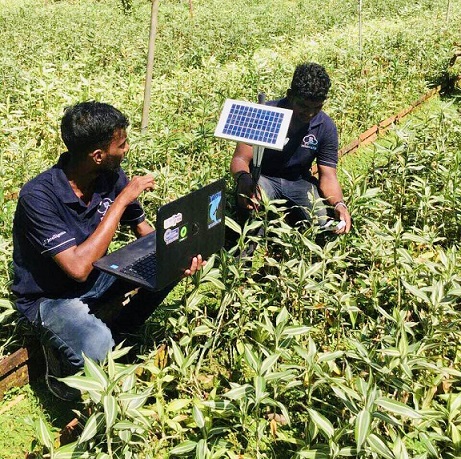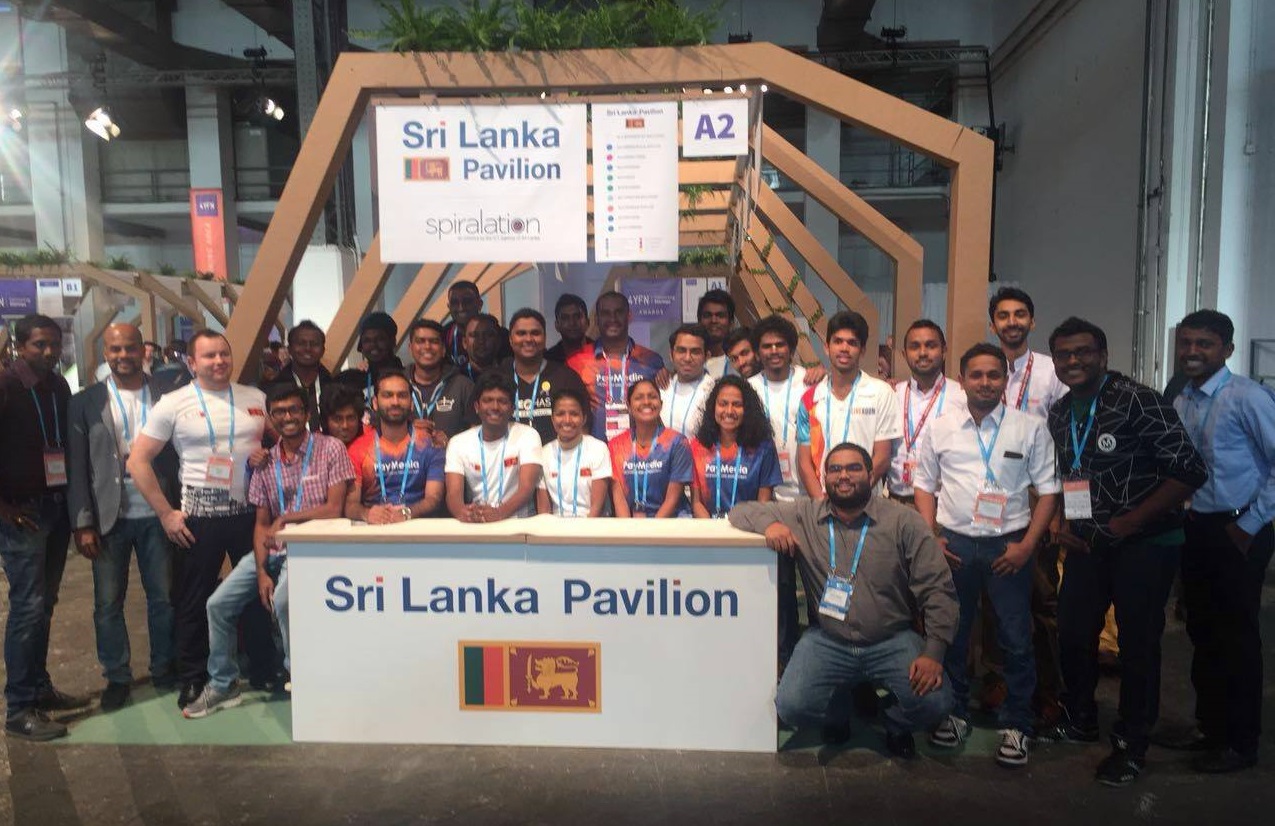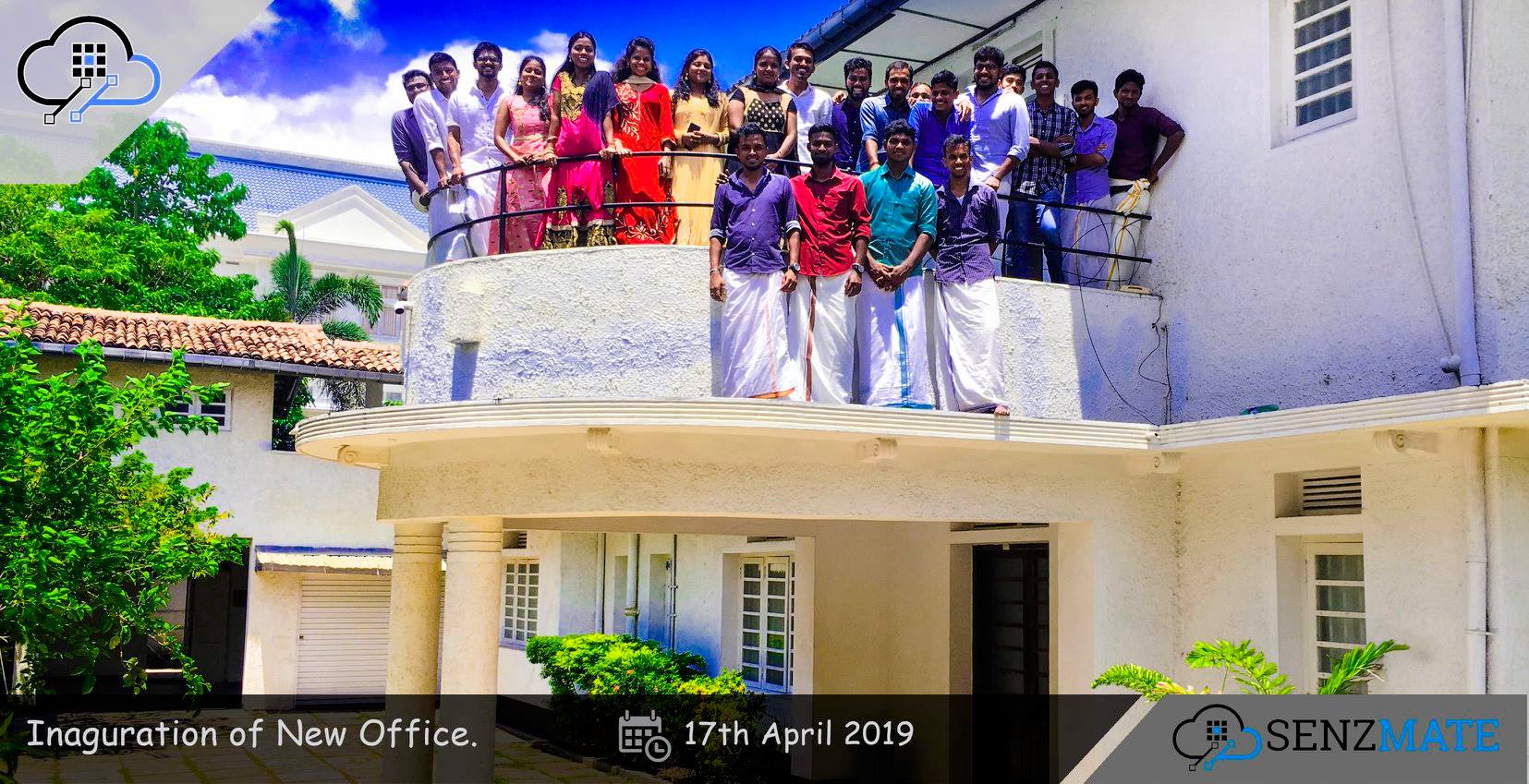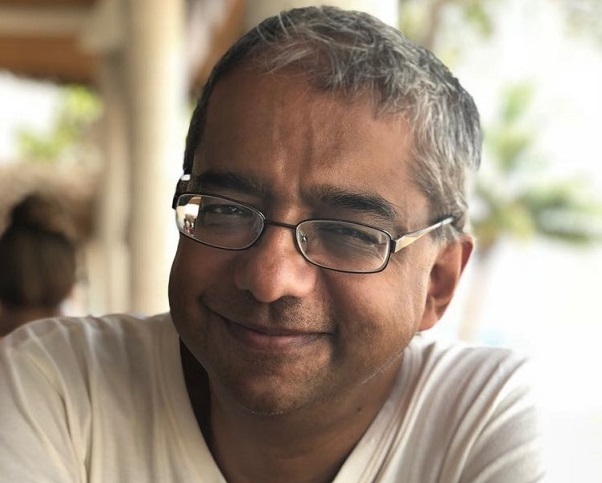By Jekhan Aruliah
I visited SenzMate a few months ago, and am only now getting around to writing about them. The reason for my hesitation has been although this is a Jaffna born company it is no longer in Jaffna. My objective in these articles is to root for businesses to move North. SenzMate had moved lock stock and barrel South to Colombo. My hope is its spiritual roots remain in Jaffna, and things will sprout there in due course. SenzMate’s CEO, T. Jeyjenthan (Jey), assures me that this is indeed on his roadmap and is planned to happen sooner rather than later.
SenzMate was born in the Yarl Geek Challenge (YGC) competition, supported by Yarl IT. And it was reborn, following a near-death experience of which I am about to tell you more, supported by the ICTA. ICTA ( the Information and Communication Technology Agency) is responsible for implementing all ICT initiatives of the Sri Lankan Government.
The YGC SenzMate team’s core, Jey and Anton Crises John Nirajh (John) came out of Hartley College, a famous school in the town of Point Pedro at the northernmost tip of the Jaffna Peninsula. After Hartley College they went to Moratuwa University, arguably the apex breeding ground of techies in Sri Lanka. Their winning entry for the 2014 YGC was a Digital Irrigation Automation (DIA) product. DIA uses sensors combined with drip irrigation technology to deliver water and fertilisers “just in time” to a farmer’s crops. This “Precision Agriculture”, by monitoring the soil environment for moisture and other factors including acidity (pH), ensures the water and fertilisers are delivered with maximum efficiency and economy to ensure the optimum harvest from the fields.

The North is infamously dry, so conserving water at any time is a high priority. More crucially, it means at times of limited water supply the crops can still get all they require because water is only delivered to where it is needed. Efficient use of fertilizers and pesticides, minimizing the quantity of fertilizers and pesticides used, is not only ecologically friendly but also reduces the quantity and cost of these chemicals the farmer has to purchase.
Jey understood the need for this product because his own family has a farm in Jaffna. He was able to use his family farm to experiment and develop the technology. Having won the YGC in 2014, SenzMate raised seed funding mainly from Yarl IT members. They started to roll out the product to local farmers in Jaffna. The actual cost per acre was Rs60k for the drip irrigation, plus Rs100k for the technology including the hardware. SenzMate charged the farmers only Rs20k per acre.
Save water; save money on fertilisers; save the environment; save Rs140k on the actual costs; higher yields and better quality produce. What could possibly go wrong!? In 2014 after a successful pilot run SenzMate decide to roll the product out more widely to small farmers.
Jey admits that while SenzMate had produced an engineering marvel, they hadn’t considered the mentality of small rural farmers. Farmers like to see their fields looking damp, said Jey. The wetness reassures them that their crops are happy, wrapped in securely in rich moist earth. The farmers didn’t concern themselves that much of this moistness returned straight to the skies by evaporation. Even with the evidence of their own eyes of seeing crops thriving in a dry looking field, the farmers were not enthused.
The seed money from the Yarl IT investors ran out. When SenzMate approached Angel Investors there was not much interest. The Angels saw SenzMate as a hardware company so their wings didn’t flap and their wallets didn’t open. SenzMate was going through a near-death experience.
“What doesn’t kill you makes you stronger”. I referred to this saying in my earlier article about Arima, another successful Jaffna based tech company. In 2016 the SenzMate team moved to Colombo, where they were joined by their COO (Chief Operating Officer) Miller Alexander a graduate of Jaffna University. They got into the Spiralation programme, and accelerator run by ICTA. From Spiralation they got a cash grant, as well as a 6 month training course on Legal, Financing, and Marketing matters. ICTA covered all costs, apart from travel and accommodation, for them to participate in the Barcelona Trade Show.

With this valuable exposure to international customers in Barcelona as well as the training on building a business, SenzMate made a radical pivot to their strategy. They evolved the technology they had developed for precision farming into a Cold Chain Monitoring (CCM) system.
CCM is aimed at companies who are storing or transporting temperature sensitive goods. These include foods (meat; ice cream; milk etc), medical (vaccines; blood; tissue etc). Clients could come from the hotel, restaurant, warehousing, hospital, and many other sectors. In particular, SenzMate specialized in sub-zero temperature storage, developing IoT (Internet of Things) intelligence with their product called “Polar”.
At Barcelona they got the opportunity to present to 2,000 potential customers. The night before the presentation, Jey and Miller made the decision to pitch their original Precision Farming product that had almost wiped them out when pitched at rural Northern farmers. In Barcelona they got interest from Israel, UK, and USA. The opportunity was not just to sell their product, but to sell data being generated from their products to these foreign clients. The foreign clients wanted to understand the South Asian agriculture business so they could more effectively market their own products and services, and invest in farms themselves.
New business lines include greenhouse monitoring and monitoring “growbags”. Growbags, popular in the West, are bags of compost to grow flowers and vegetables that can be kept indoors in greenhouses or in homes. They have a particular niche among those living in apartments, who spend all day at office, and don’t have the time nor space nor inclination to potter around in the mud with a spade and fork. People who may forget their petunias and begonias, and would appreciate them being fed and watered automatically.
While the original idea of providing Precision Agriculture to small farmers hasn’t yet caught on, Senzmate found success in the large commercial farming sector, with both microclimate and open farms.
Reviving vigorously from its near death experience, SenzMate started new business lines, built new partnerships, and won new investors including one of Sri Lanka's largest conglomerates John Keells. John Keells provided more than investment, it provided access. Access to government and clients, as well as access to training and workshops.
SenzMate partnered with the well known tech entrepreneur Jeevan Gnanam to form Mosurance. Their technology creates a platform for insurance companies to offer “Pay As You Drive” type car insurance. This has already taken hold in the West, in particular for younger drivers whose driving safety can also be monitored. These Western insurers use the technology to monitor whether the driver is driving within the speed limit, or is driving erratically (braking, swerving), and can adjust premium costs accordingly. Technology like this is surely OBVIOUSLY worth installing on the buses, coaches and lorries on our Sri Lankan roads to monitor how they are driven. To penalise the lunatics in the driver’s seats as well as their greedy bosses who require them to meet targets only achievable by putting other people’s lives at risk.
I asked Jey why he moved SenzMate from Jaffna to Colombo. He cited various advantages the Colombo tech community offers. In short, I would say his reasons amounted to Access.
a) Access to a bustling tech community, with its special competitive culture that encourages hard work and learning and supports risk taking. A culture that feeds upward peer-pressure and self education opportunities: SPIKE a monthly open mike forum run at Barefoot in Colombo; the UNDP’s HackDev workshop to implement the SDG goals; and other forums and workshops by MAS, MIT, Hatch, Likuid Space, SLASSCOM, ICTA and others.
b) Access to clients, national and international. Access to investors and to business partners. Access to bodies that want to help the Tech Industry across the country, including SLASSCOM and ICTA, but inevitably concentrate on the Western Province.
In addition to access, Jey says there is a work culture issue in the North. The same problematic culture is widespread across Sri Lanka in the less competitive sectors, but tends to get burned out at the front lines of the IT sector. Competition in the IT sector means a company can’t grow if it doesn’t have the right attitude, because a competitor is always waiting to grab a weak operator’s customers. And without customers a company goes bust. This is an issue that has been successfully handled by some tech outfits operating in the North, and not successfully by others. It is something that needs to be actively planned for and managed.
In April 2019 SenzMate opened a new office in Colombo.

Jey told me they had plans to open a Jaffna office earlier this year, to work on new projects they were expecting to win. However the 2019 Easter Day bombings in Colombo, Negombo and Batticalao shook the confidence of clients, and some of these projects were postponed.
Both he and I hope that Senzmate’s plans to start operating in the North will be back on track in the near future.
Jey ended the interview by making special mention of the Yarl IT Hub. He said it was probably the greatest influence from the start, with the Yarl Geek Challenge, and even now with Yarl IT people providing support and guidance. “We aren’t born entrepreneurs, we are taught entrepreneurs” said Jey.
To contact Jeyjenthan Tharmakulasingham (Jey), CEO of SenzMate: Jey@SenzMate.com
( — The writer Jekhan Aruliah was born in Sri Lanka and moved with his family to the UK when he was two years of age. Brought up in London, he graduated from Cambridge University in 1986 with a degree in Natural Sciences. Jekhan then spent over two decades in the IT industry, for half of which he was managing offshore software development for British companies in Colombo and in Gurgaon (India). In 2015 Jekhan decided to move to Jaffna where he is now involved in social and economic projects. He can be contacted at jekhanaruliah@gmail.com — )

